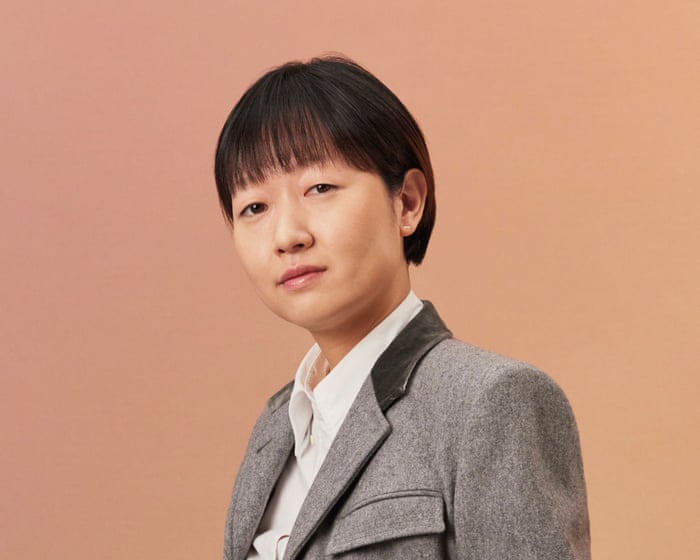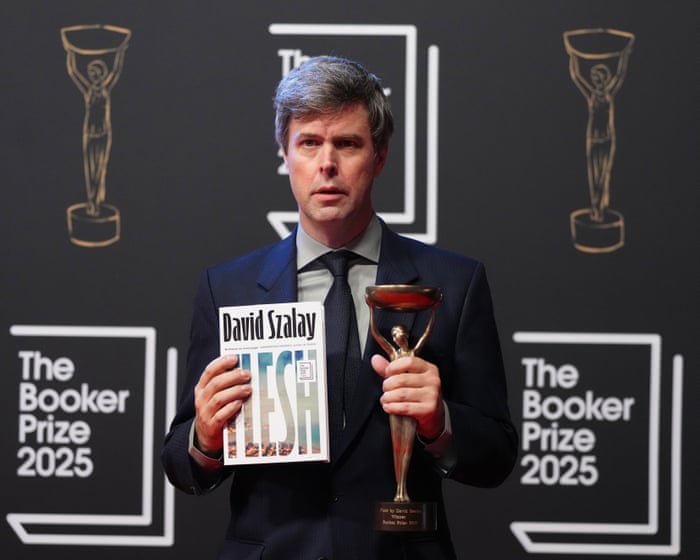“Our financial literacy is completely messed up,” says Celine Song. We’re having breakfast in Manhattan on a sunny July morning, a few weeks after her new film Materialists premiered in New York City. She’s wearing a playfully ironic outfit—a “HOWDY” T-shirt and a “Big” baseball cap (though she’s petite, standing at 5’4″)—but speaks with striking sincerity.
She’s frustrated that people have mislabeled one of her film’s characters, a private equity manager with a $12 million apartment, as a “billionaire.” “If you’re a billionaire, your apartment wouldn’t just cost $12 million!” she exclaims. “The average American adult earns $35,000 a year—meaning half the country makes less than that. Three times that is $100,000. Ten times is $1 million. And a billion? That’s not a hundred million—it’s a thousand million.”
The distinction matters to her because, in her view, billionaires could never be sympathetic characters. “Because billionaires are so visible, we mistake their wealth for normal success,” she says. “But no—that’s just crime.”
It’s unusual to discuss financial literacy in the context of a rom-com, the genre Materialists wholeheartedly embraces. The film follows a high-end matchmaker (Dakota Johnson) torn between an old flame (Chris Evans), who’s broke, and a wealthy suitor (Pedro Pascal)—the “not-billionaire” in question. Typically, New York-set rom-coms are escapist fantasies where no one questions how the lead affords a luxury apartment or designer shoes, let alone the ethics of their love interest’s wealth.
But Materialists spells out every financial detail. Early on, Lucy (Johnson) bluntly tells Harry (Pascal) she makes “$80,000 a year before taxes”—a figure he should consider before pursuing her. The characters’ homes reflect their economic realities: Harry’s $12 million Tribeca penthouse, Lucy’s aspirational Brooklyn Heights studio (rented pre-pandemic, with prices verified on Zillow), and John’s (Evans) shared Sunset Park apartment (originally set in Williamsburg until the crew pointed out he couldn’t afford it).
“The American dream is unattainable. Marriage is one of the few ways to move up in class,” Song observes.
Yet she’s no cold realist. Her eyes sparkle just as brightly when discussing love, which she describes as “being struck by lightning.” Her debut film, Past Lives—a 2024 Oscar nominee—weaves a poignant, cross-cultural tale of a happily married Korean immigrant (a stand-in for Song) reconnecting with a childhood sweetheart and confronting paths untaken. The film explores inyeon, a Buddhist concept of fated, cosmic connections across lifetimes.
Materialists has no such wistfulness. Harry’s idea of romance is praising Lucy’s “intangible assets”—he’s drawn to her power as a matchmaker who decides who has value. “We live in a culture obsessed with efficiency and productivity, where everything’s about being better, faster, stronger,” Song says, critiquing society’s relentless grind.Optimization. “Where do you find that raw, animal instinct to simply survive?”
Love nor money… Dakota Johnson and Pedro Pascal in Materialists. Photograph: Atsushi Nishijima
Song, 36, was born in Seoul to artist parents. Her father, a filmmaker, named her after the mischievous stage magician played by Juliet Berto in Jacques Rivette’s French New Wave classic Céline and Julie Go Boating. At 12, her family moved to Ontario, Canada, where she spent her college years before relocating to New York to earn a Master of Fine Arts in playwriting at Columbia University. By the time she began making films, she had already found success in theater with deeply personal yet boldly experimental plays. These included Endlings (2019), which intertwined the stories of three Korean female divers and a Korean-Canadian writer in New York, and a live production of The Seagull staged in The Sims 4 during the 2020 lockdown.
Song never endured the struggles of modern dating. As depicted in Past Lives, she met her husband, screenwriter Justin Kuritzkes—who recently wrote Luca Guadagnino’s tennis film Challengers—at a writing residency in Montauk, Long Island, when she was 24. But early in her New York years, she got a bitter taste of dating culture while working as a matchmaker for six months after a friend in the industry recommended the job. It felt like an “HR role with a more hands-on client-facing aspect”—fitting, since Song had studied psychology as an undergrad.
Yet she knew she couldn’t force chemistry for her clients, and they knew it too. “I was basically told who to reject,” she says. “They’d say, ‘I’m not even open to meeting certain people who don’t fit my criteria.'” The worst clients, some featured in the film, were shockingly blunt about their prejudices. “People would rank races they preferred. They’d outright say, ‘No Asians.’ They wouldn’t even admit that to their therapist.”
For years, she wanted to make a film about the experience, but the script never quite worked—until she realized why. “I thought the focus should be on the clients. But the problem is, they’re not that interesting because they all want the same thing. If I asked 10 clients what kind of man they wanted, they’d all say: over six feet tall, earns more than me, great body, strong hairline.”
Match point… Dakota Johnson in Materialists. Photograph: Atsushi Nishijima
Everything clicked years ago when she ran into an old grad school friend at a high-end gala for theater donors. She was there as an up-and-coming playwright mingling with wealthy patrons; he, once a promising acting student, was working as a server. When she went to greet him with a hug, she sensed mutual embarrassment—as if they’d crossed an invisible line, like Rose venturing below deck to be with Jack in Titanic.
“How Victorian is that?” she says. “But it’s 2017!”
She realized the film she wanted to make was about class—the true heart of all great romances. Early in Materialists,…Here’s a natural, fluent rewrite of your text:
Lucy meets Harry at an upscale wedding she helped organize, only for John – working there as a waiter – to interrupt them. This moment reveals Lucy as an outsider in the wealthy world she’s so skillfully infiltrated. While she usually assesses potential partners with cool calculation, her logic falters around John – love, as usual, defies reason.
In Materialists, Lucy eventually faces consequences, but writer-director Celine Song treats her protagonist with compassion. She understands women who rely on logic as their salvation. Song sees the “tradwife” trend sweeping social media – where women embrace traditional roles – as symptomatic of deeper societal issues. “It reflects how broken our economic systems are, especially in America,” she says. “The American dream is unattainable; class mobility is a myth. Marriage remains one of the few paths to upward mobility.”
The film features an element of fantasy: its insecure protagonists are played by stunning actors like Pedro Pascal and Chris Evans. Even casting Dakota Johnson as Lucy – a woman who believes she’s ordinary – was a “fantasy trick,” Song admits. “But my actors understood these roles perfectly. Who knows more about being treated like merchandise than the stars of The Mandalorian or Captain America?”
Despite its cynical surface, Materialists delivers sweeter romantic declarations by rejecting superficial conventions. Following Past Lives‘ critical success with a star-studded romcom is bold – the genre now mostly survives in streaming holiday specials. Even distributor A24 seemed self-conscious, releasing a “syllabus” of Song’s influences featuring art-house names like Vinterberg and Scorsese. But Song proudly owns her love for romance.
She recalls screening Past Lives in Ireland: “A burly Irishman started crying during Q&A about his childhood sweetheart. We relegate love stories to ‘the girlies,’ but everyone craves connection. I knew there was real appetite for Materialists.”
Song welcomes how her film might spark conversations about love. “It’s romantic to invite audiences to spend two hours discussing relationships.” Then she adds with characteristic pragmatism: “And we get to be real! The biggest audience reaction always comes when someone says ‘$12 million apartment.'”
Materialists opens in UK cinemas August 13.



